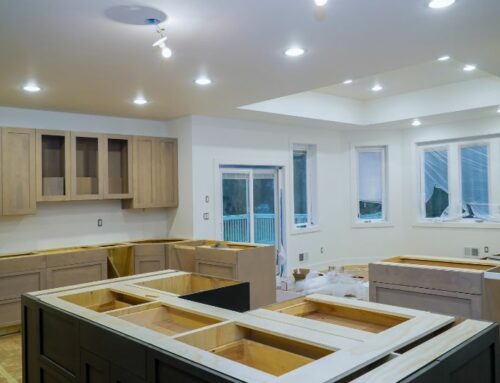Unveiling the Ultimate Homebuilding Choice
When you set out on the path to homeownership on the Mississippi Gulf Coast, one of the important decisions you’ll come across is whether to build a custom home or purchase from a production builder. While both options present advantages and challenges, your personal preferences, lifestyle, and financial circumstances ultimately determine your best choice.
In this blog post, we’ll delve into the benefits of building a custom home versus buying a house from a production builder, helping you make an informed decision that aligns with your vision of the perfect home.
The Charm of Custom Homes
- Personalized Design—Custom homes offer unparalleled personalization. Your custom home can truly reflect your unique style and preferences, with the ability to customize everything from the layout to the finishes and features.
- Quality Craftsmanship—Custom home builders often focus on quality over quantity. They work closely with you to ensure that every detail meets your standards, using high-quality materials and skilled craftsmanship. This frequently results in a home that not only looks beautiful but withstands the test of time and helps lower the total cost of ownership.
- Unique Locations—When building a custom home, you have the freedom to choose your ideal homesite. This flexibility allows you to build a home in a location that perfectly complements your lifestyle.
- Energy Efficiency—Custom homes can be designed with energy efficiency in mind. By incorporating advanced insulation, high-efficiency HVAC systems, energy-efficient windows, and sustainable building materials, you can reduce your environmental footprint and enjoy long-term savings on energy bills.
- Future-Proofing—Custom homes can be built to accommodate future needs. Whether you plan to expand your family, work from home, or age in place, a custom design can incorporate flexible spaces and features that adapt to your changing needs over time.
The Appeal of Production Homes
A production home, sometimes called a “tract home,” is generally part of a large-scale development where multiple homes are built simultaneously on a single tract of land. Key characteristics of tract homes include:
- Uniform Designs—Tract homes often have standardized designs, resulting in neighborhoods with homes that look very similar to each other.
- Lower Cost to Build—Builders can reduce construction costs with volume discounts because they are built in bulk.
- Pre-designed Layouts—Buyers usually have to pick from a few floor plans and finishes rather than create a custom design.
- Faster Build Time—Since the homes are reproduced repeatedly, they tend to go up faster.
- Predictability—With a production home, what you see is what you get. Model homes and showrooms show the product finalized, minimizing surprises.
Buying a tract home seems like a practical choice for many homeowners. These homes are built quickly and are sometimes more affordable than custom-built houses. However, after meeting many homebuyers, we would like to share some common drawbacks we have heard.
- One of the main reasons we have heard buyers regret was the lack of uniqueness in tract homes. These houses are often mass-produced, resulting in a cookie-cutter design that lacks character and individuality. Every home on the block looks almost identical, making it challenging to stand out or personalize the space to individual tastes.
- Another downside of tract homes is the limited customization options. Unlike custom-built homes, where you can choose every design aspect, tract homes come with pre-determined layouts and finishes. This restriction can make creating a home that reflects your style and preferences complex.
- The quality of construction in tract homes was another issue that has been mentioned. To reduce costs, builders sometimes use lower-quality materials during construction, which can lead to problems down the line.
- Maintenance and upkeep of tract homes can also be a headache. Since many of these homes are built with standard materials and finishes, repairs and renovations can be more challenging and expensive. Finding replacement parts or matching existing features can be a hassle, further adding to the regret of choosing a tract home.
- Lastly, the resale value of tract homes may not be as promising as custom-built or unique properties. The lack of individuality and the oversaturation of similar homes can make selling the property difficult. This aspect can also contribute to long-term regret over the initial purchase decision.
While tract homes offer affordability and convenience, the lack of uniqueness, customization options, quality of construction, privacy, maintenance challenges, and resale value can lead to regret for homeowners. Before deciding to purchase a tract home, it’s important to weigh the pros and cons to ensure a home that meets your needs and preferences in the long run.
Making the Right Choice

Choosing between a custom home and a production home depends on your priorities and circumstances. A custom home may be the perfect fit if you appreciate personalized design, superior craftsmanship and materials value, and the ability to choose your location. On the other hand, if cost-effectiveness, quick move-in times, and predictability are more important, a production home might be the better option.
Regardless of your choice, custom and production homes have their benefits that can lead to a fulfilling homeownership experience. Take the time to weigh your options, consider your long-term needs, and envision how each path aligns with your dream of homeownership. In the end, the best home is one that meets your needs and feels uniquely yours.
Coastal Contracting has been building custom homes on the Mississippi Gulf Coast for over twelve years. As a custom home builder, we have worked with many homebuyers, including those who purchased a production home from a high-volume builder. If you want to learn more about building a custom home or receive a personal invite to our upcoming design center, email us at sales@msccpro.com.





